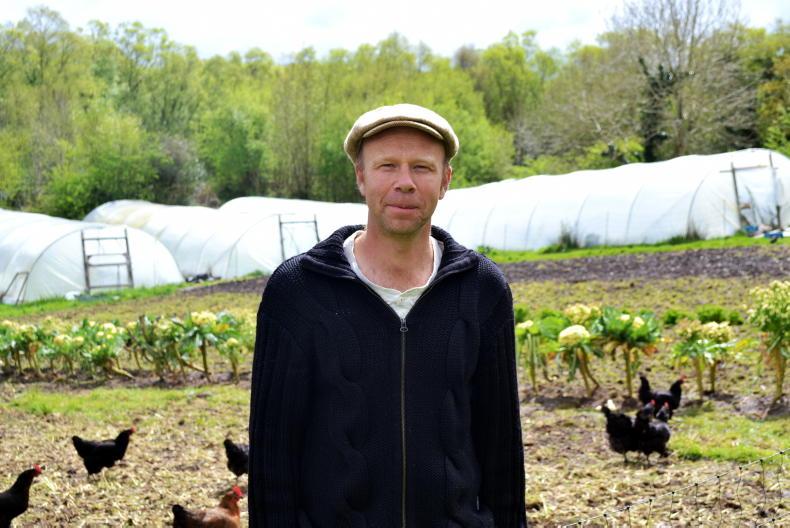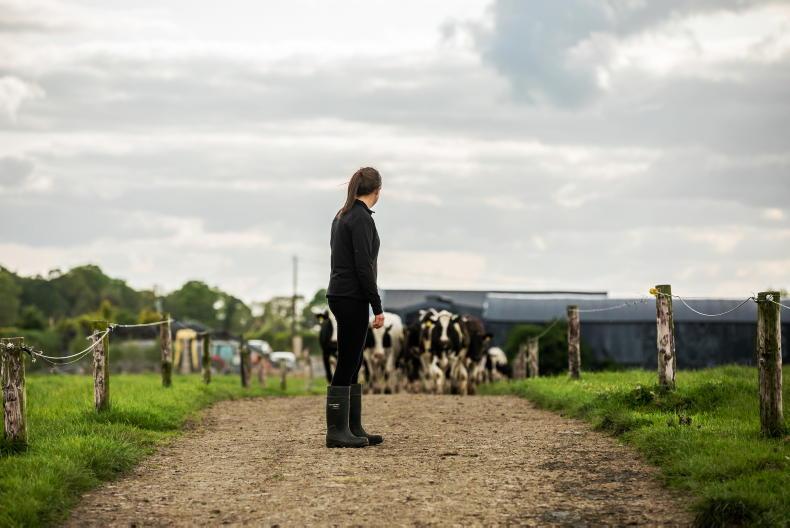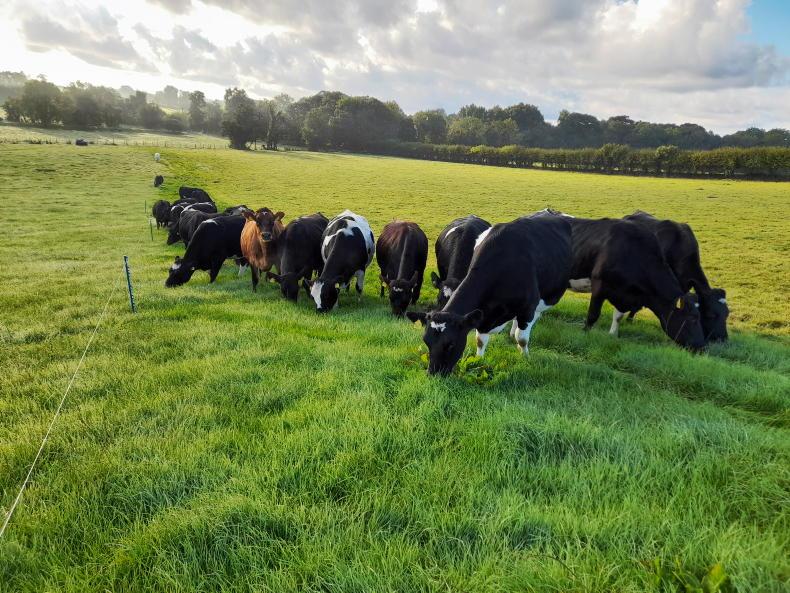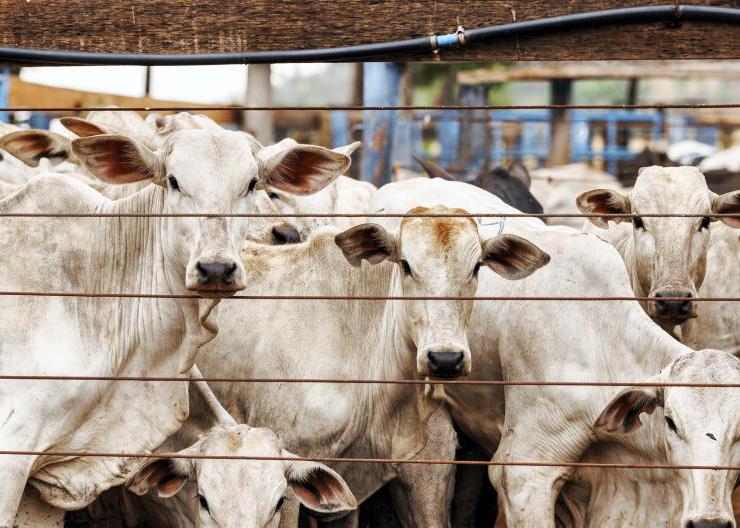Are you tired of having limited internet connectivity? With the ongoing roll-out of the Government’s National Broadband Plan (NBP), hopefully within a few short years such annoyances will be a thing of the past.
The National Broadband Plan was undertaken by the Government because of the huge amount of work and financial investment needed to bring high-speed broadband internet to all parts of the country.
While being overseen by the Government, the project itself is being undertaken by a group of shareholders known as National Broadband Ireland (NBI), who were awarded the tender put out by the Government in 2019.
Present and future benefits
In May 2022, professional service network Ernst & Young (EY) produced a Government-commissioned report outlining the potential present-day and future benefits the NBP will bring to Ireland – and, in particular, rural Ireland.

The report states that areas of enterprise, such as agriculture and hospitality, in the “intervention area” (the Government-identified areas in the country which do not have access to high-speed broadband) will benefit greatly from the eventual completion of the plan, “unlocking new economic opportunities, while contributing to balanced regional development”.
The intervention area includes almost 550,000 premises or 23% of the country. Counties like Roscommon, Leitrim and Mayo have the highest number of premises (in Leitrim, it’s 52% of the county) while Co Dublin, unsurprisingly, has the least amount.
Some satisfied farmers
In areas of the country where the rollout has been completed, rural dwellers say they are content with their new level of connectivity. In Co Clare, Jason Horner – who owns and operates the seed-saving company Leen Organics – says things have changed for the better since the rollout.
“We’re about seven miles outside of Ennis and our rollout was completed just 10 days ago,” he tells Irish Country Living. “Previously, we had gotten to a point where we were able to pick up a 4G [signal] at 20Mbps, so for the last 18 months we’ve been okay. But now, when we’re plugged in, we’re getting 350Mbps.”

Jason Horner is a seed farmers in rural Co Clare. The rollout was recently completed in his area.
While they are now connected, Jason says there are still many people in the region without access to high speed internet. Reliable internet has been necessary for running his business, so he appreciates how far things have come.
“I remember once Vodafone network was down for the day, so I just took the day off,” he laughs. “I thought we were well down the queue [for the NBP rollout], but they were on time – although it took two years from when it was announced.
“It means I can do a Zoom call without it breaking up or make a WhatsApp call – both of which were unreliable in the past,” he adds. “So yes, there’s less disruption and more reliable communication. You don’t really notice the speed, but maybe we might watch a film now without it stopping right at the good bit!”
Government optimistic
The Department of the Environment, Climate and Communications (DECC) is the Government body responsible for the NBP. A department spokesperson tells Irish Country Living the potential benefits to the agricultural industry are very exciting and will allow for the conversion to precision technologies.
“One of the key points [of the report] was that smart farming techniques can allow farmers to reduce chemical application by up to 80%, reduce water use by 20-50% and fuel consumption by 40%,” they say.
Through its digital connectivity strategy, the Government plans to provide connectivity to the entire Irish population, not just through the National Broadband Plan, but also the creation of remote working hubs and broadband connection points. This strategy was published in December, 2022.
“[Its target is to have] all Irish households and businesses covered by a gigabit network no later than 2028, and all populated areas covered by 5G no later than 2030,” the spokesperson says.
International rankings
The department representative refutes the idea (held by many) that Ireland is a much less connected country than other regions; stating that we currently rank fifth in terms of connectivity within the European Union (EU) according to the EU’s Digital Economy and Society Index (DESI). In 2019, we ranked 11th on the same index.
“Of the 2.4 million premises across Ireland, 77% now have access to high-speed broadband of more than 30Mbps,” they say.
Critics
The NBP is not without its critics. Groups like IrelandOffline, who have actively lobbied the Government for years over the issue of rural broadband, believe the Department of the Environment, Climate and Communications has not been clear on where and how the money is being spent.
Ashley Glover lives in rural Co Wicklow. He is an environmentalist, champion axe-thrower and works in the tech industry from his home. He has been dealing with broadband issues for years and, as a member of IrelandOffline, says Government officials have been anything but forthcoming with regards to the NBP.
“We have a number of Freedom of Information [FOI] requests in and all the questions which are important have yet been unanswered, so there are many issues associated with the rollout scheme,” he tells Irish Country Living. “However, because connectivity is improving [with increased access to 4G mobile networks], people aren’t really incentivised to ask questions.”
The Department has now twice refused to provide information around areas like governance and funding for the NBP to IrelandOffline. Ashley finds it puzzling that the Government did not add on to the extensive infrastructure of the Eircom network (which reaches most rural areas already); choosing instead to build entirely new infrastructure. He feels this approach has wasted a vast amount of time.
“There should have been an independent regulatory body set up for this,” he says.
Ahead of schedule
A spokesperson from NBI says that by the end of January 2022, 118,000 premises were ready to connect to the NBI network, which was ahead of the target of 102,000 set by the DECC for the same period.
“National Broadband Ireland’s high-speed network is being delivered over the very latest fibre broadband technology, meaning every line is future proofed to deliver up to 10GB speeds directly into Irish homes and businesses. Initial speeds of 2 GB are available with a minimum speed of 500MB,” they write.
When will the roll-out arrive to your area? You can use the Eircode search option on nbi.ie to find out.
Read more
Over 11,000 extra farms to have access to high-speed broadband
Broadband boss has ‘a lot to do in four years’ to hit 54,000 farm target
Are you tired of having limited internet connectivity? With the ongoing roll-out of the Government’s National Broadband Plan (NBP), hopefully within a few short years such annoyances will be a thing of the past.
The National Broadband Plan was undertaken by the Government because of the huge amount of work and financial investment needed to bring high-speed broadband internet to all parts of the country.
While being overseen by the Government, the project itself is being undertaken by a group of shareholders known as National Broadband Ireland (NBI), who were awarded the tender put out by the Government in 2019.
Present and future benefits
In May 2022, professional service network Ernst & Young (EY) produced a Government-commissioned report outlining the potential present-day and future benefits the NBP will bring to Ireland – and, in particular, rural Ireland.

The report states that areas of enterprise, such as agriculture and hospitality, in the “intervention area” (the Government-identified areas in the country which do not have access to high-speed broadband) will benefit greatly from the eventual completion of the plan, “unlocking new economic opportunities, while contributing to balanced regional development”.
The intervention area includes almost 550,000 premises or 23% of the country. Counties like Roscommon, Leitrim and Mayo have the highest number of premises (in Leitrim, it’s 52% of the county) while Co Dublin, unsurprisingly, has the least amount.
Some satisfied farmers
In areas of the country where the rollout has been completed, rural dwellers say they are content with their new level of connectivity. In Co Clare, Jason Horner – who owns and operates the seed-saving company Leen Organics – says things have changed for the better since the rollout.
“We’re about seven miles outside of Ennis and our rollout was completed just 10 days ago,” he tells Irish Country Living. “Previously, we had gotten to a point where we were able to pick up a 4G [signal] at 20Mbps, so for the last 18 months we’ve been okay. But now, when we’re plugged in, we’re getting 350Mbps.”

Jason Horner is a seed farmers in rural Co Clare. The rollout was recently completed in his area.
While they are now connected, Jason says there are still many people in the region without access to high speed internet. Reliable internet has been necessary for running his business, so he appreciates how far things have come.
“I remember once Vodafone network was down for the day, so I just took the day off,” he laughs. “I thought we were well down the queue [for the NBP rollout], but they were on time – although it took two years from when it was announced.
“It means I can do a Zoom call without it breaking up or make a WhatsApp call – both of which were unreliable in the past,” he adds. “So yes, there’s less disruption and more reliable communication. You don’t really notice the speed, but maybe we might watch a film now without it stopping right at the good bit!”
Government optimistic
The Department of the Environment, Climate and Communications (DECC) is the Government body responsible for the NBP. A department spokesperson tells Irish Country Living the potential benefits to the agricultural industry are very exciting and will allow for the conversion to precision technologies.
“One of the key points [of the report] was that smart farming techniques can allow farmers to reduce chemical application by up to 80%, reduce water use by 20-50% and fuel consumption by 40%,” they say.
Through its digital connectivity strategy, the Government plans to provide connectivity to the entire Irish population, not just through the National Broadband Plan, but also the creation of remote working hubs and broadband connection points. This strategy was published in December, 2022.
“[Its target is to have] all Irish households and businesses covered by a gigabit network no later than 2028, and all populated areas covered by 5G no later than 2030,” the spokesperson says.
International rankings
The department representative refutes the idea (held by many) that Ireland is a much less connected country than other regions; stating that we currently rank fifth in terms of connectivity within the European Union (EU) according to the EU’s Digital Economy and Society Index (DESI). In 2019, we ranked 11th on the same index.
“Of the 2.4 million premises across Ireland, 77% now have access to high-speed broadband of more than 30Mbps,” they say.
Critics
The NBP is not without its critics. Groups like IrelandOffline, who have actively lobbied the Government for years over the issue of rural broadband, believe the Department of the Environment, Climate and Communications has not been clear on where and how the money is being spent.
Ashley Glover lives in rural Co Wicklow. He is an environmentalist, champion axe-thrower and works in the tech industry from his home. He has been dealing with broadband issues for years and, as a member of IrelandOffline, says Government officials have been anything but forthcoming with regards to the NBP.
“We have a number of Freedom of Information [FOI] requests in and all the questions which are important have yet been unanswered, so there are many issues associated with the rollout scheme,” he tells Irish Country Living. “However, because connectivity is improving [with increased access to 4G mobile networks], people aren’t really incentivised to ask questions.”
The Department has now twice refused to provide information around areas like governance and funding for the NBP to IrelandOffline. Ashley finds it puzzling that the Government did not add on to the extensive infrastructure of the Eircom network (which reaches most rural areas already); choosing instead to build entirely new infrastructure. He feels this approach has wasted a vast amount of time.
“There should have been an independent regulatory body set up for this,” he says.
Ahead of schedule
A spokesperson from NBI says that by the end of January 2022, 118,000 premises were ready to connect to the NBI network, which was ahead of the target of 102,000 set by the DECC for the same period.
“National Broadband Ireland’s high-speed network is being delivered over the very latest fibre broadband technology, meaning every line is future proofed to deliver up to 10GB speeds directly into Irish homes and businesses. Initial speeds of 2 GB are available with a minimum speed of 500MB,” they write.
When will the roll-out arrive to your area? You can use the Eircode search option on nbi.ie to find out.
Read more
Over 11,000 extra farms to have access to high-speed broadband
Broadband boss has ‘a lot to do in four years’ to hit 54,000 farm target











SHARING OPTIONS